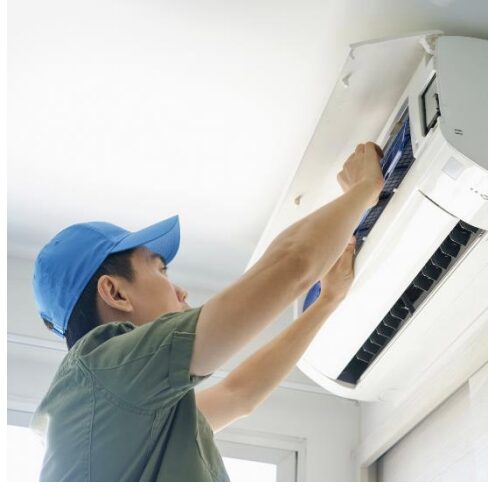Opinion: Get a Heat Pump Now and Save

Local and Green
The following column also appeared in the Amherst Bulletin.
I bought a single heat pump minisplit for my ranch style home in 2015 that has provided the large majority of my heat and air conditioning for the last 10 years. And it has improved my life considerably. Residents considering a new home heating system should seriously evaluate installing a heat pump before the end of 2025, especially to take advantage of the disappearing financial incentives.
Heat Pumps Are an Excellent Choice
Heat pumps function as both heaters in winter and air conditioners in summer. This dual functionality means residents can get rid of inefficient oil, gas, or electric resistance systems and achieve consistent indoor comfort from a single appliance. Modern heat pumps maintain steady indoor temperatures and humidity levels far more effectively than traditional HVAC systems, reducing dramatic swings and drafts in living spaces.
They also offer substantial energy savings. For many households, switching to a heat pump can reduce annual heating and cooling costs by hundreds of dollars—sometimes nearly $1,000 annually for those moving from oil, propane, or electric resistance heat—thanks to their efficiency, which is around 2–3 times higher than legacy systems.
Environmental and Health Advantages
Installing a heat pump significantly lowers household carbon emissions. which are typically around 40% less than conventional fossil-fuel based systems. Heat pumps also eliminate combustion in the home, reducing risks associated with fuel storage, carbon monoxide, and other pollutants. This transition not only contributes to a cleaner environment but also directly improves indoor air quality and household health.
One caveat with purchasing a heat pump in 2025 is that in 2026, heat pumps will be required to use refrigerants with significantly less “global warming potential” (GWP). If you can afford to, I would purchase a heat pump using one of the new refrigerants as soon as they are available.
Financial Incentives in 2025
Massachusetts is currently offering very generous incentives for heat pump installations in 2025. Under the Mass Save® program, residents can receive up to $10,000 for whole-home systems ($3,000 per ton, capped at $10,000), with even greater rebates—up to $16,000—for income-eligible households. Financing is also accessible, with 0% interest loans up to $25,000 available for up to seven years, lowering the barrier for immediate upgrades.
Federal incentives add to these state programs, offering a 30% tax credit, up to $2,000, for qualifying heat pump installations completed before the end of the year. However, these rebates and credits are slated to disappear or decrease after 2025.
As of November 2025, residents using heat pumps are eligible for a winter heat pump rate discount (about 4¢/kWh lower during the heating season), which can further reduce overall heating costs by roughly 17%. Households that maximize efficiency and take advantage of this rate could see annual costs closer to $600, possibly even lower for modest homes or careful users.
Amherst, Northampton, Easthampton and Pelham each have existing heat pump programs currently running. In Amherst, interested residents are encouraged to act quickly to benefit from both the federal tax credit (up to $2,000) and the Town of Amherst’s $3,500 incentive, as well as other available state and federal incentives. Residents are invited to join the Town of Amherst and CET for a virtual information session on Tuesday, September 9 from 7 to 8:30 pm via Zoom to learn more about the Amherst Heat Pump Incentive Program!
The Northampton-Easthampton Electrification Campaign supports the decarbonization of small residential buildings (1-4 units) in Northampton and Easthampton. Participants may be eligible for assistance coordinating the implementation of weatherization, heat pumps, and other electrification measures, enhanced air sealing and rebates for installing heat pumps. There are additional incentives for landlords for upgrades that benefit renters.
Northampton and Easthampton moderate-income residents and rental property owners interested in participating in the program should sign up to be contacted by the program’s campaign partner,
Last but not least, Pelham’s provides Electrify Pelham, a program that helps Pelham’s residents understand their opportunities for installing energy efficiency and electrification technologies, including weatherization, rooftop solar, heat pump heating and cooling, hybrid water heaters, electric and plug-in electric vehicles, batteries, and clean energy appliances, take advantage of the financial incentives available to install these technologies, and work through the decision making needed.
Darcy DuMont is a former town councilor and sponsor of the legislation creating the Amherst Energy and Climate Action Committee. She is a founding member of Zero Waste Amherst, Local Energy Advocates of Western MA, and a non-voting member of Valley Green Energy Working Group. She can be contacted at dumint140@gmail.com.
